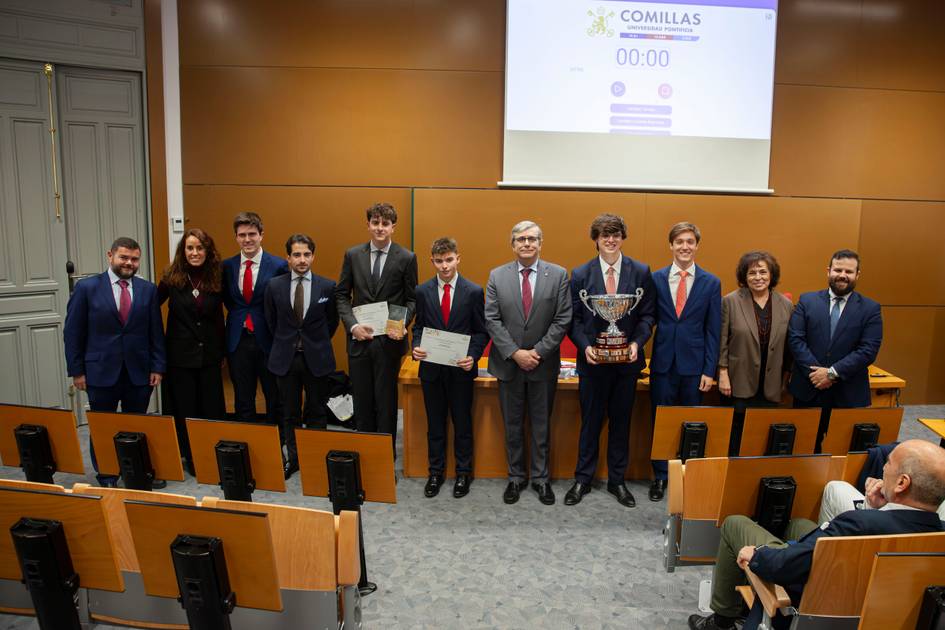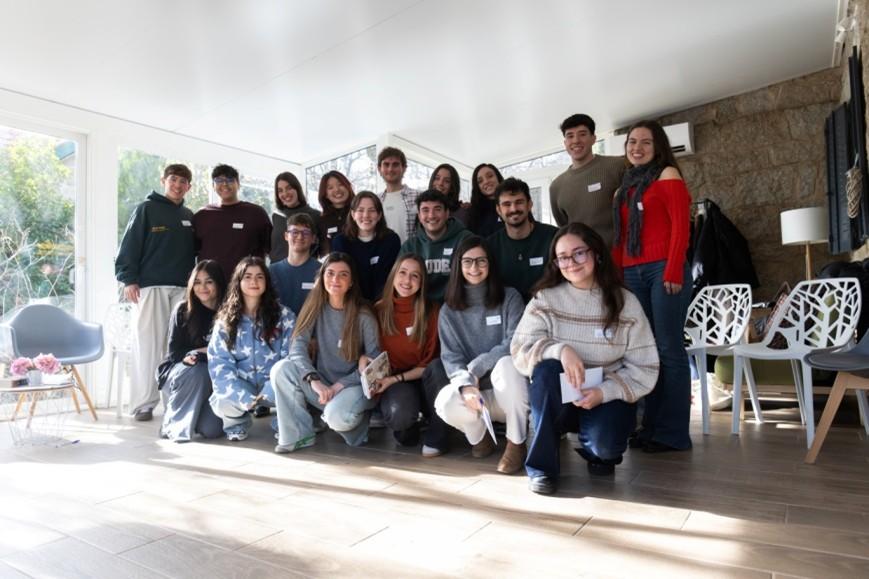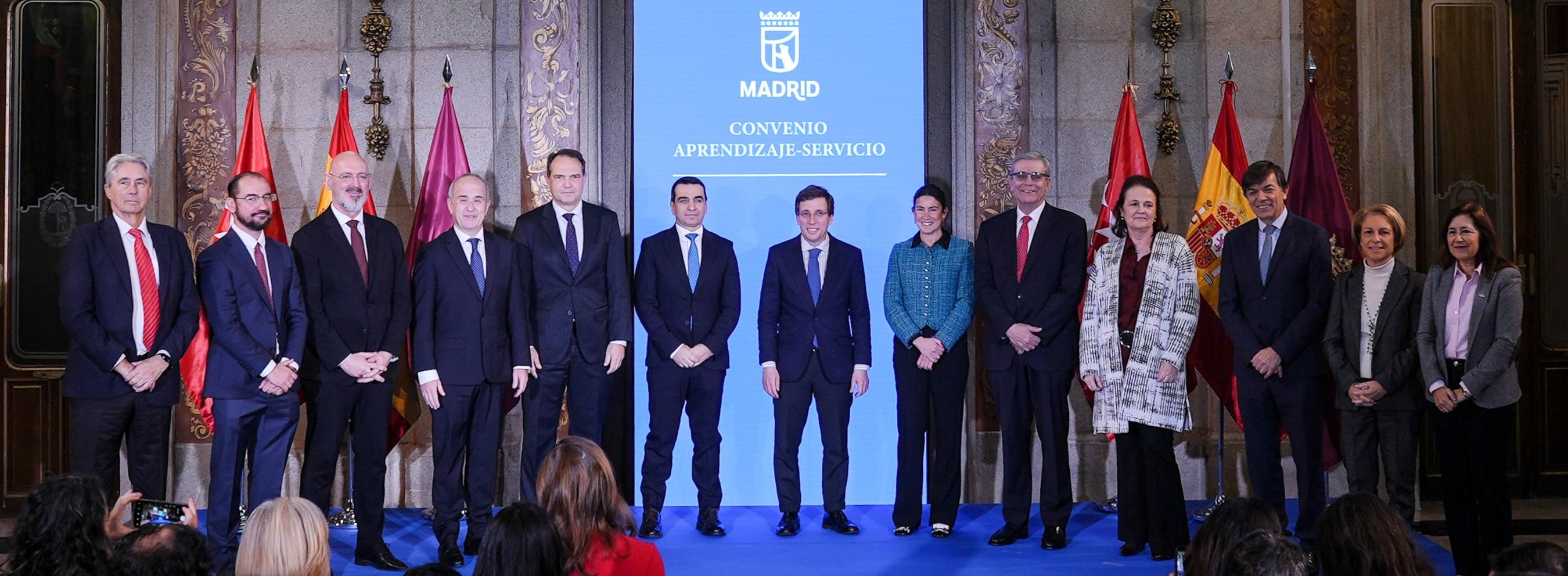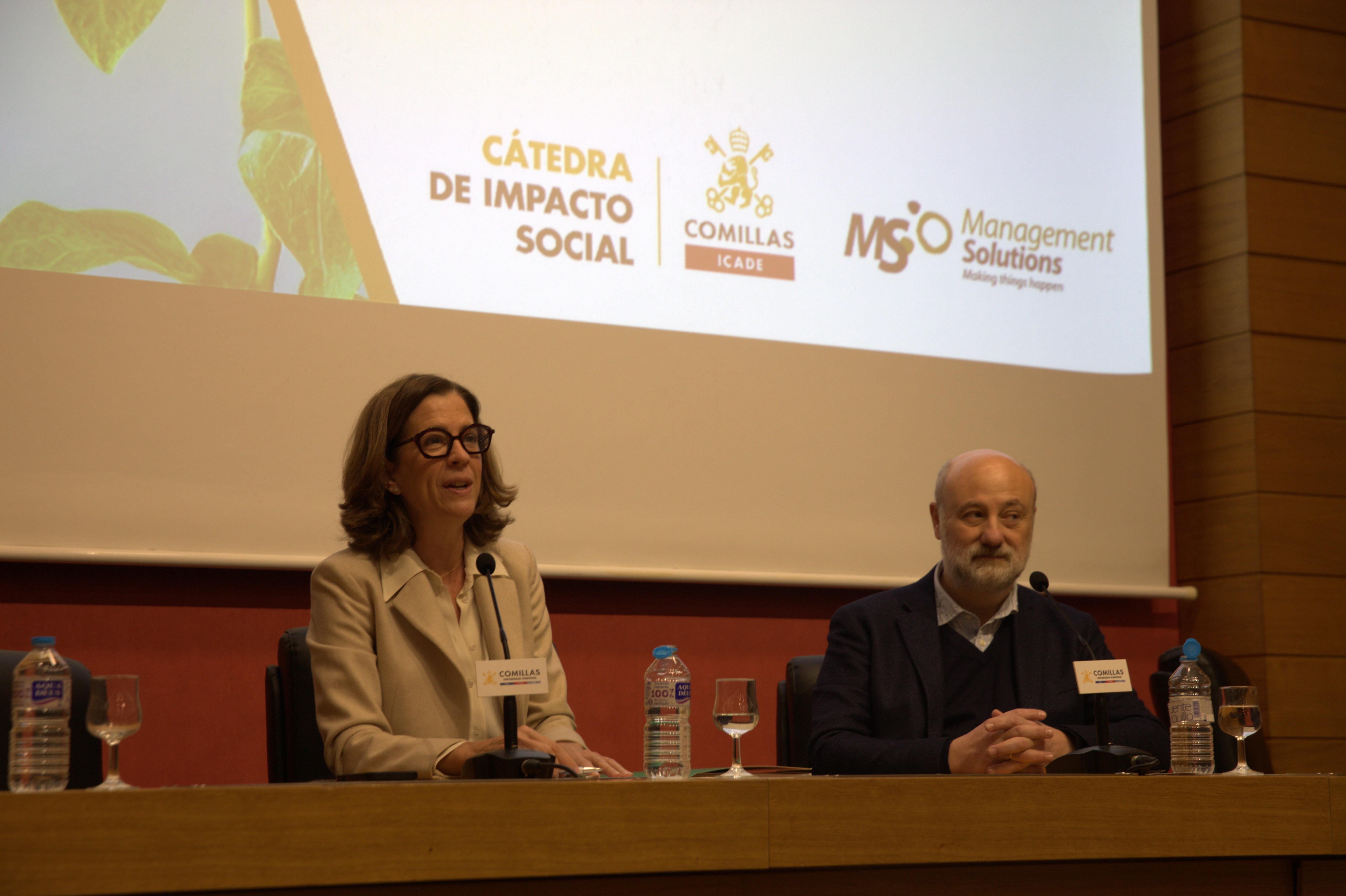Native languages vs. global languages: final of the Rector's Debate Trophy 2024
One of the most important events at Comillas analyses the cultural and economic impact of abandoning indigenous languages in developing countries

18 November 2024
As every year, Comillas held the final of the Rector's Debate Trophy 2024 with a great reception and exceptional quality of oratory. This event, one of the most eagerly awaited of the year, had as its theme the following question: Is it positive for developing countries to abandon the native language of the country in favour of more widespread foreign languages?
More photos
On the one hand, the team formed by Leandro Nieto and Adrián Campos, first year students of the Dual Degree in Law and International Relations (E-5). They defended the position in favour, arguing that the adoption of more widespread languages could facilitate access to global opportunities, improve their economic positioning and forge better international relations. On the other hand, Valerio Pérez de Madrid and Álvaro Tesouro, third year students of the Dual Degree in Law and Business Administration and Management (E-3), were against. They stressed the importance of preserving native languages as pillars of cultural identity and key tools for local development.
After an arduous and passionate deliberation, due to the quality demonstrated by both teams, as pointed out by the rector of the university, Antonio Allende, SJ, the jury announced Valerio Pérez and Álvaro Tesouro as the winners.
Once again this year, the Rector's Debate Trophy has established itself as a pioneering event in the dissemination of critical thinking, public speaking and constructive dialogue among students.
You may be interested in

María Merinos and Marcos Fernández Martínez, students of the Dual Degree in Psychology and Business Administration, participate in this programme, a reference in Spain for the development of young talent

The agreement connects university education with projects with social impact, training students committed to the city

The Social Impact Chair presents a report that calls for guaranteeing the financial health of vulnerable groups to boost social cohesion
